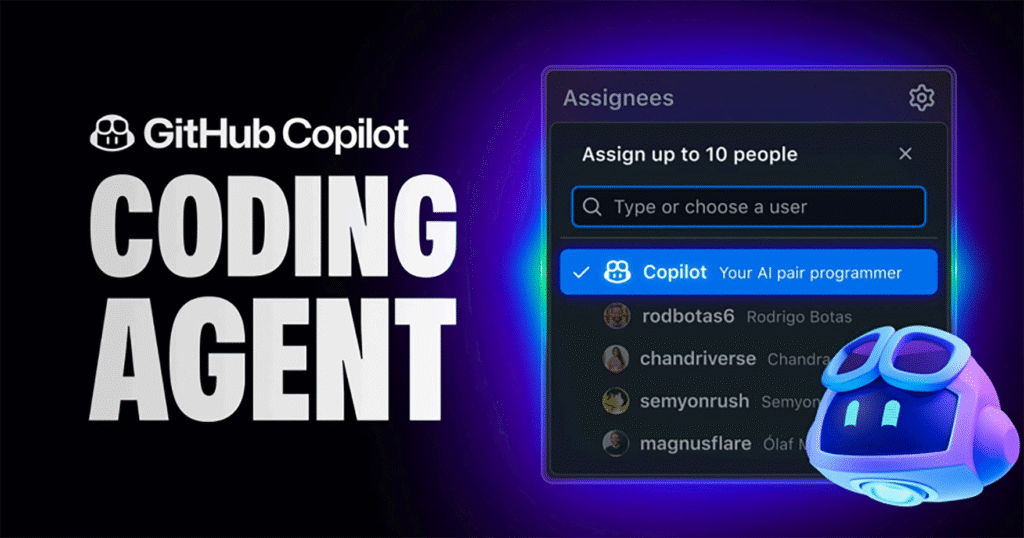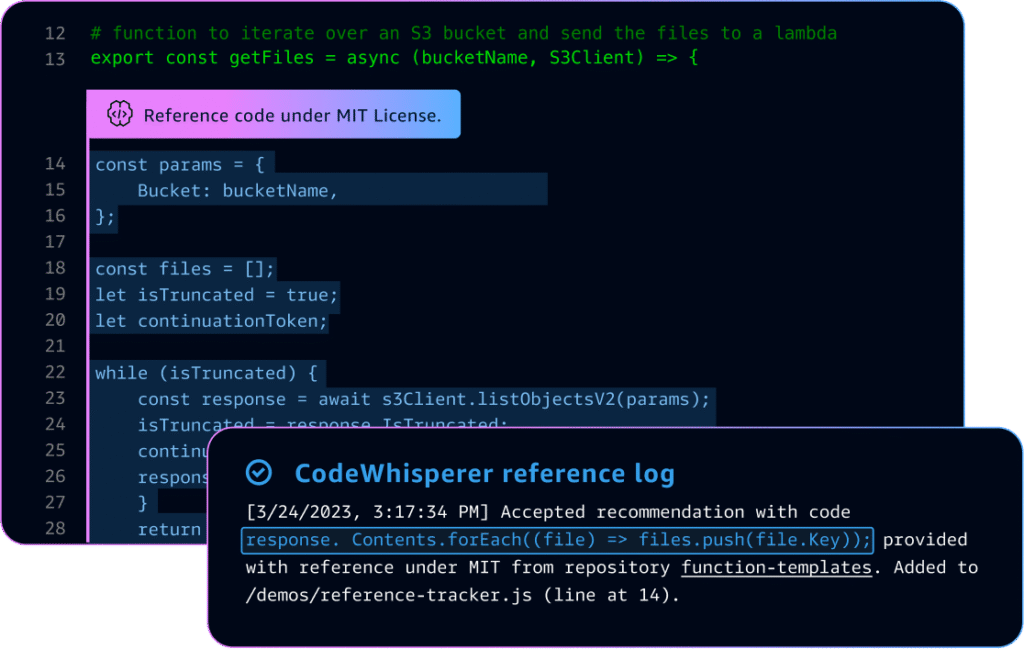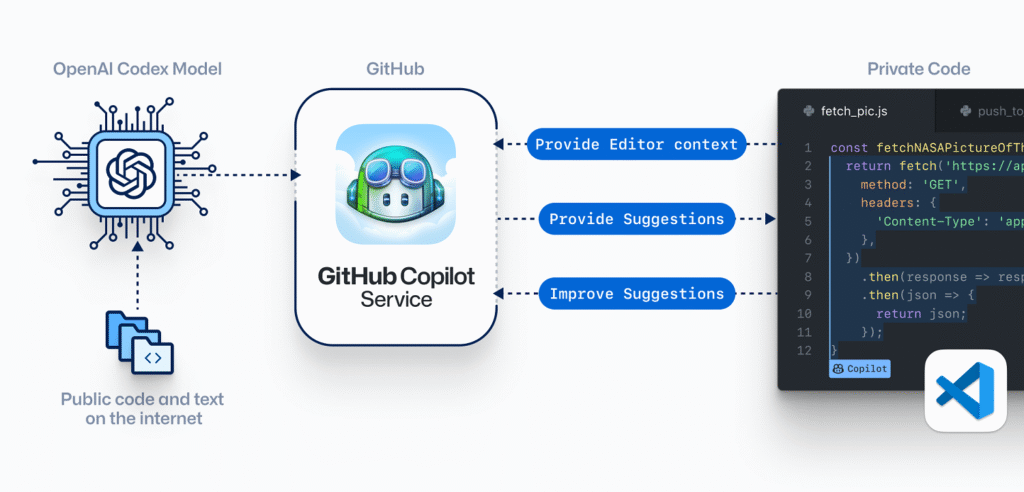Introduction: The AI Coding Revolution – Choosing Your Digital Pair Programmer
Software development is experiencing a paradigm shift in its world. In an era where efficiency and productivity reign supreme, AI-powered coding assistants like GitHub Copilot vs. Amazon CodeWhisperer have emerged as game-changers, fundamentally altering how developers write, review, and optimize code.

As these tools continue to evolve, developers face a critical question: Which AI coding assistant truly delivers the best value for my specific needs?
This in-depth 1500+ word tutorial will give you:
✅ A detailed feature-by-feature comparison of GitHub Copilot and Amazon CodeWhisperer
✅ Real-world performance analysis based on developer experiences
✅ Pricing breakdowns to help you make cost-effective decisions
✅ Security considerations for enterprise and individual developers
✅ Clear recommendations based on different development scenarios
Whether you’re a freelance developer, startup team, or enterprise architect, this guide will equip you with the knowledge to choose the perfect AI coding companion. “Level up your dev toolkit – discover more game-changing AI tools in our latest reviews!”
GitHub Copilot vs. Amazon CodeWhisperer: Core Overview
What is GitHub Copilot?
Developed by GitHub (a Microsoft company) in collaboration with OpenAI, GitHub Copilot represents the cutting edge of AI-assisted programming. Powered by OpenAI’s advanced language models, Copilot functions as an intelligent pair programmer that suggests entire lines or blocks of code as you type.

Key Features of GitHub Copilot:
- Real-time code completion across multiple languages
- Context-aware suggestions based on your entire codebase
- Natural language to code conversion (describe what you need in plain English)
- Deep integration with popular IDEs including VS Code, JetBrains products, and Neovim
- GitHub repository awareness for more relevant suggestions
- Copilot Chat for interactive coding assistance (similar to ChatGPT for developers)
What is Amazon CodeWhisperer?
Amazon’s answer to AI-assisted coding, CodeWhisperer, is specifically optimized for cloud-native development and AWS services. Beyond basic code completion, it offers unique features tailored for security-conscious developers working in cloud environments.

Key Features of Amazon CodeWhisperer:
- AWS-optimized code generation for services like Lambda, DynamoDB, and S3
- Built-in security scanning to identify vulnerabilities
- Reference tracking to help with code attribution
- Free tier available for individual developers
- Multi-language support with emphasis on cloud development stacks
- IDE integration including VS Code, JetBrains, and AWS Cloud9
Detailed Feature Comparison

1. Code Generator Quality versus Accuracy
GitHub Copilot’s Code Generation:
- Leverages OpenAI’s GPT models trained on vast amounts of public code
- Excels at understanding developer intent from comments and partial code
- Especially good with:
- Boilerplate code generation
- Algorithm implementation
- Framework-specific patterns (React, Django, etc.)
- Sometimes produces overly creative or outdated solutions
Amazon CodeWhisperer’s Code Generation:
- Focused on practical, production-ready code
Neat work in: - AWS service integrations
- Infrastructure-as-Code (IaC) templates
- Security-conscious implementations
- More conservative in suggestions compared to Copilot
- Better at maintaining consistent coding styles
Verdict: Copilot offers more creative solutions while CodeWhisperer provides more standardized, security-aware code.
2. Language and structure Aid
| Language/Framework | GitHub Copilot | Amazon CodeWhisperer |
|---|---|---|
| Python | čAn excellent | čExcellent |
| JavaScript/TypeScript | ✅ Very good | ✅ Very good |
| Java | ✅ Strong | ✅ strong |
| C# | ✅ Strong | ⚠ Basic |
| Go | ✅ Good | ❌ Not Supported |
| Rust | Good | Not Supported |
| AWS CDK | 🌳 Basic | 🐌 Excellent |
| Terraform | ||
| Kubernetes | ⚠ basic | ✅ Strong |
Key Insight: Copilot supports a broader range of general-purpose languages while CodeWhisperer excels in cloud-specific technologies.
3. IDE and Support Environment
| Dev Tools | GitHub Copilot | Amazon CodeWhisperer |
|---|---|---|
| Visual Studio Code | ✅ full | ✅ Full |
| JetBrains IDEs | ✅ Full | ✅ Full |
| Visual Studio | ✅ All | ❌ Not Supported |
| AWS Cloud9 | ❌ No | ✅ Built In |
| Jupyter notebooks | ✅ Yes | ✅ Yes |
| Neovim/Vim | ❇️✅ Yes | ❇️❌ No |
Verdict: Copilot offers wider environment support while CodeWhisperer provides deeper AWS environment integration.
Pricing and Value Proposition

GitHub Copilot Pricing:
- Individual Plan: $10/month (billed annually) or $19/month (monthly)
- Business Plan: $19/user/month
- Enterprise Features: Organization-wide management, SSO, audit logs
- Trial: 30-day free trial for individuals
Amazon CodeWhisperer Pricing:
- Individual Tier: Free forever
- Professional Tier: $19/user/month (same as Copilot Business)
- Enterprise Features: AWS integration, organization management
- No trial needed – free tier available immediately
Cost Analysis:
- For individual developers, CodeWhisperer’s free tier is compelling
- For teams and businesses, pricing is nearly identical
- Enterprise AWS users may find more value in CodeWhisperer’s native integrations
Security and Compliance Comparison
GitHub Copilot Security:

- Trained on public code which may include vulnerabilities
- No built-in security scanning
- Potential licensing concerns with generated code
- No reference tracking for code attribution
Amazon CodeWhisperer Security:

- Built-in security scanning (identifies hardcoded credentials, SQLi risks)
- Reference tracking for code snippets
- AWS compliance-friendly architecture
- Less reliance on public code repositories
Security Verdict: CodeWhisperer is the clear winner for security-conscious development, particularly in regulated industries.
Real-World Developer Experiences

GitHub Copilot Strengths:
Has changed my React development process in kind of revolution way – Frontend Developer
It is said to be incredible in the rapid prototyping of algorithms by a Data Scientist.
- “Time-saving on average 30 percent of what I would code” – Full-stack Developer
Amazon CodeWhisperer Strengths:
You need this in your AWS serverless development, Cloud Architect
In DevOps, the security scanning has identified several vulnerabilities – DevOps Engineer
SRE- “The ideal Infrastructure-as-Code companion”
Common Complaints:
- Both tools sometimes generate incorrect or outdated code
- Copilot can be overly verbose in suggestions
- CodeWhisperer lacks support for some non-cloud languages
Final Recommendations

Choose GitHub Copilot If:
✔ You work with multiple programming languages
✔ You need creative coding solutions
✔ You value natural language to code conversion
✔ You work primarily in non-AWS environments
Choose Amazon CodeWhisperer If:
✔ You develop AWS/cloud-native applications
✔ Security scanning is a priority
✔ You want a free tier for individual use
✔ You work extensively with Infrastructure-as-Code
Try Both If:
- You’re undecided (Copilot has a trial, CodeWhisperer has free tier)
- Your work spans both general and cloud-specific development
Conclusion: Which AI Coding Assistant Wins?
The battle between GitHub Copilot and Amazon CodeWhisperer doesn’t have a universal winner – it depends entirely on your specific development needs.
For general-purpose coding across multiple languages, GitHub Copilot remains the more versatile and creative solution. The high level of integration with GitHub and a huge variety of IDEs that MayFlow supports helps it to accommodate different development teams in a way that suits them.
For AWS-focused development with security as a priority, Amazon CodeWhisperer offers compelling advantages. Its cloud provisions and in-built security offerings are palpable advantages to developers using the AWS setups.
Ultimately, the best approach might be to try both tools in your workflow. Many developers find value in using Copilot for general coding and CodeWhisperer for cloud-specific tasks.
Which AI coding assistant are you leaning toward? Share your thoughts in the comments below!
Email: adil.taskthegroup@gmail.com








